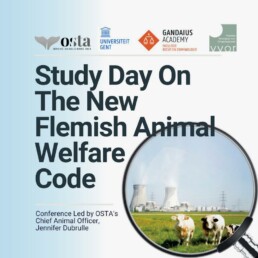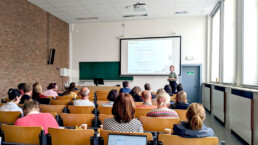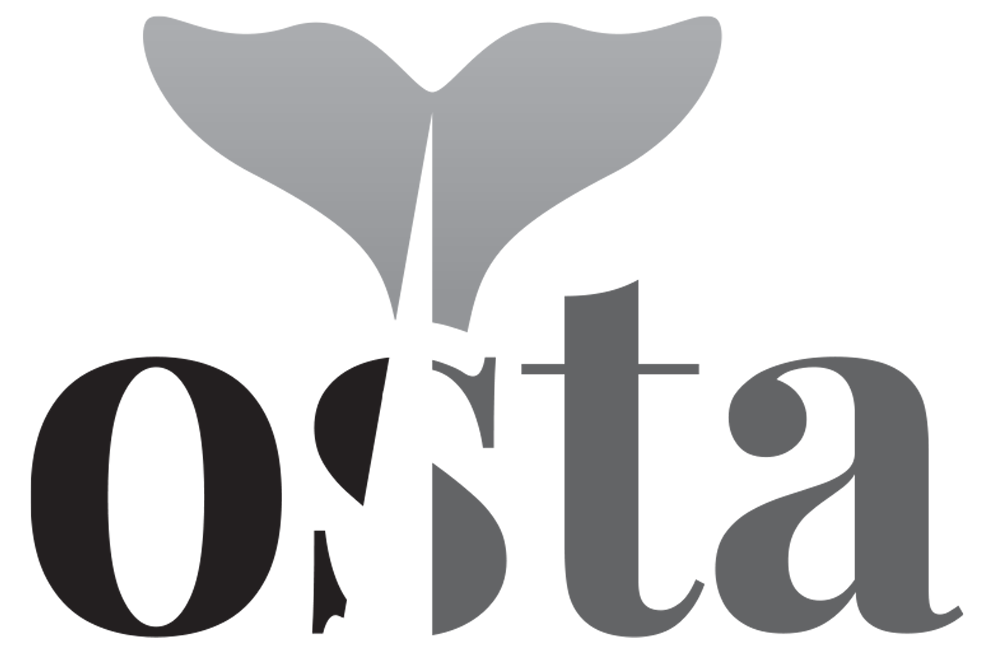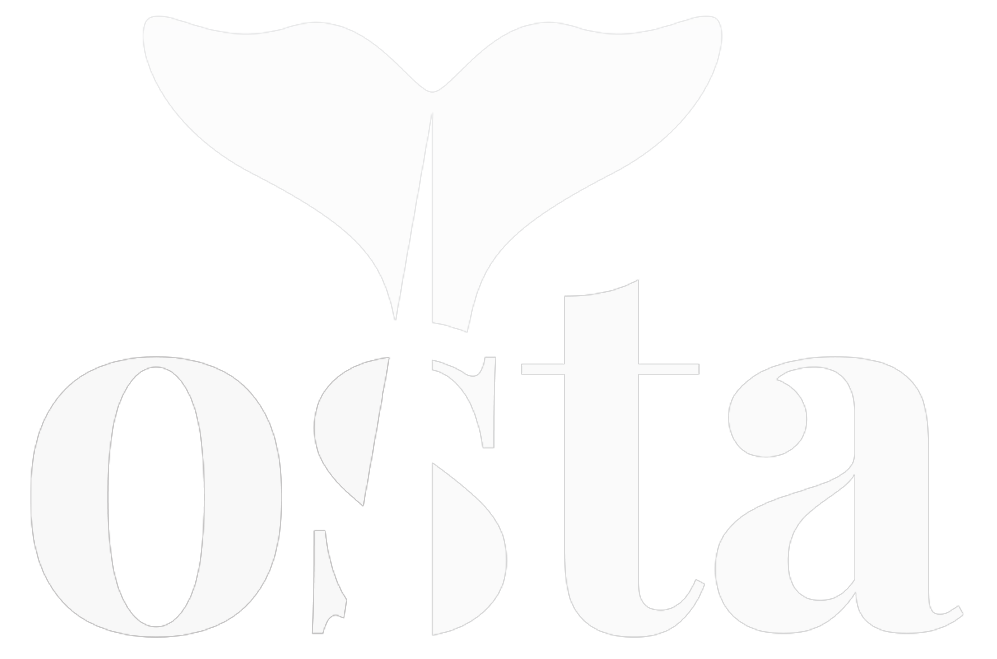
Journée d’Étude sur le Code Flamand du Bien-Être Animal, 20 juin 2024
Un programme riche et soigneusement orchestré par la Directrice du Bien-être Animal de l'OSTA

Le 20 juin 2024, l’Université de Gand, en collaboration avec l’Académie Gandaius et l’Association flamande pour le droit de l’environnement, a organisé un événement dédié au Code flamand du bien-être animal, qui entrera en vigueur le 1er janvier 2025. Cette journée a mis en lumière des présentations d’experts et des discussions approfondies sur les implications du nouveau code, les défis liés à son application et son impact sur le bien-être animal en Flandre. Parmi les intervenants de premier plan figuraient des représentants des autorités du bien-être animal, de la police, du monde académique et des organisations de défense des animaux, tous réunis pour explorer les nouvelles dimensions de ce cadre juridique.
Ratifié le 17 mai 2024, ce code marque une étape majeure : pour la première fois, la Flandre adopte son propre code du bien-être animal.
Notre Directrice du Bien-être Animal, Jennifer Duvillers, a animé cette journée en qualité de modératrice et est également intervenue en tant qu’oratrice pour partager ses perspectives. La journée a été rythmée par des présentations d’experts et des débats stimulants.
Des experts de renom pour une vision globale
Neuf spécialistes issus de différents horizons du bien-être animal flamand ont partagé leurs connaissances et expériences. Ils représentaient les autorités du bien-être animal, des organisations de protection animale, le Conseil flamand du bien-être animal, des organismes de contrôle et le milieu académique.
Professeure Nadine Buys a présenté les avis du Conseil flamand du bien-être animal, qui ont joué un rôle clé dans l’élaboration des dispositions du code.
Nektaria Moskofidis, conseillère en bien-être animal auprès du ministre flamand du bien-être animal, a offert une vue d’ensemble du Code flamand du bien-être animal.
Jasmien De Cock, inspectrice de police spécialisée dans le bien-être animal de la zone de police de Dilbeek, a abordé les défis liés à l’application des dispositions du code, en particulier celles sujettes à interprétation.
Michel Vandenbosch, président de GAIA, a dévoilé les complexités politiques qui ont influencé l’élaboration du code.
Jennifer Duvillers, s’appuyant sur des données concernant la population animale flamande, a analysé l’impact de la nouvelle législation sur les animaux.
Matthys Samyn, échevin du bien-être animal de la commune flamande de Roulers, a partagé des initiatives originales en faveur des animaux, telles qu’une banque alimentaire pour animaux et une plateforme communautaire dédiée.
Anthony Godfroid, avocat spécialisé dans la défense des animaux, a examiné un récent arrêt de la Cour de cassation belge qui limite la capacité des organisations de protection animale à engager des poursuites judiciaires pour les animaux.
Elien Verniers et Eva Bernet Kempers, chercheuses postdoctorales à l’Université d’Anvers et à l’Université de Gand, ont présenté les dispositions du code relatives aux animaux d’élevage ainsi que la reconnaissance de la valeur intrinsèque des animaux. Ces deux universitaires ont également fondé le Harrison Collectief, une initiative visant à protéger les animaux via le système juridique.
Un bilan positif et des perspectives prometteuses
L’objectif de rassembler la communauté flamande du bien-être animal pour mieux comprendre et s’orienter dans ce nouveau paysage juridique a été atteint. Les discussions ont mis en avant les opportunités progressistes offertes par le nouveau code, mais aussi les défis pratiques qu’implique sa mise en œuvre. Cette journée d’étude a été précieuse, et nous nous réjouissons d’organiser à l’avenir d’autres événements favorisant le dialogue, l’échange de points de vue et la collaboration entre les différents acteurs du bien-être animal en Flandre.

